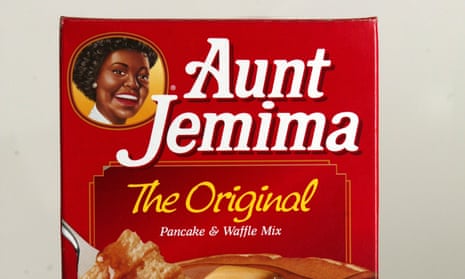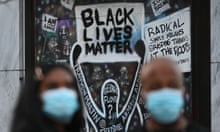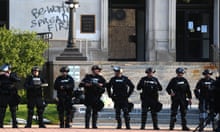One of America’s most recognizable but unreconstructed household brands, Aunt Jemima pancake products, will change its name and image in an effort by the brand to distance itself from racial stereotypes.
The logo of the brand, familiar to shoppers on every supermarket shelf that features pancake mix and pancake syrup – a staple of the classic American breakfast – features an African American woman named after a character from minstrel shows from the 19th century.
“We recognize Aunt Jemima’s origins are based on a racial stereotype,” a statement from Quaker Foods North America, a unit of PepsiCo that owns the Aunt Jemima brand, said, in a statement obtained by NBC news.
The company has long been criticized for the logo and name of its product, and made the announcement as Black Lives Matter protests against racism in the US continue to grow amid a fresh surge in anger following the police killing of George Floyd in Minneapolis last month.
“As we work to make progress toward racial equality through several initiatives, we also must take a hard look at our portfolio of brands and ensure they reflect our values and meet our consumers’ expectations,” Quaker said.
Quaker said the new packaging will be introduced in fall of 2020. A replacement name will be brought in some time after.
Early Aunt Jemima logos featured various crude renderings of a dark-skinned woman wearing a headscarf, the design clearly influenced by minstrel shows, where white-skinned actors would portray stereotyped black people.
Later Aunt Jemima was portrayed by real women – first Nancy Green, who had been born enslaved, and then Anna S Harrington.
In 1989 Quaker updated Aunt Jemima, removing the woman in a head scarf and introducing the character which still appears on packaging today. At the time a company spokesman said they “wanted a more modern-looking woman, but one who still has traditional values”, who could retain the “goodwill and positive perceptions that already existed”.
According to the Jim Crow museum of racist memorabilia, Aunt Jemima is “the most well known and enduring racial caricature of African American women” and is based on the “mammy” stereotype.
“From slavery through the Jim Crow era, the mammy image served the political, social, and economic interests of mainstream white America.
“During slavery, the mammy caricature was posited as proof that blacks – in this case, black women – were contented, even happy, as slaves. Her wide grin, hearty laughter and loyal servitude were offered as evidence of the supposed humanity of the institution of slavery.”
A pair of businessmen in Missouri created Aunt Jemima’s pancake mix in the late 1880s. They took the name Aunt Jemima from a popular vaudeville song, according to the Jim Crow museum.
In 2014 two descendants of Harrington, whose likeness was used for Aunt Jemima, sued the brand, claiming they were owed royalties. The case was dismissed in 2015, after Quaker said Aunt Jemima was never meant to be a real person.
“The image symbolizes a sense of caring, warmth, hospitality and comfort and is neither based on, nor meant to depict any one person,” Quaker Oats said at the time.









